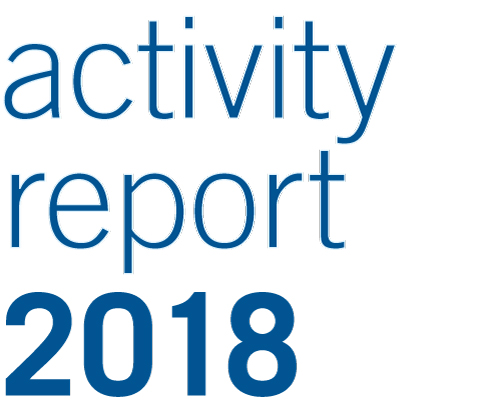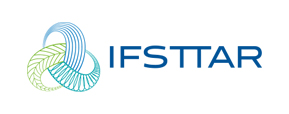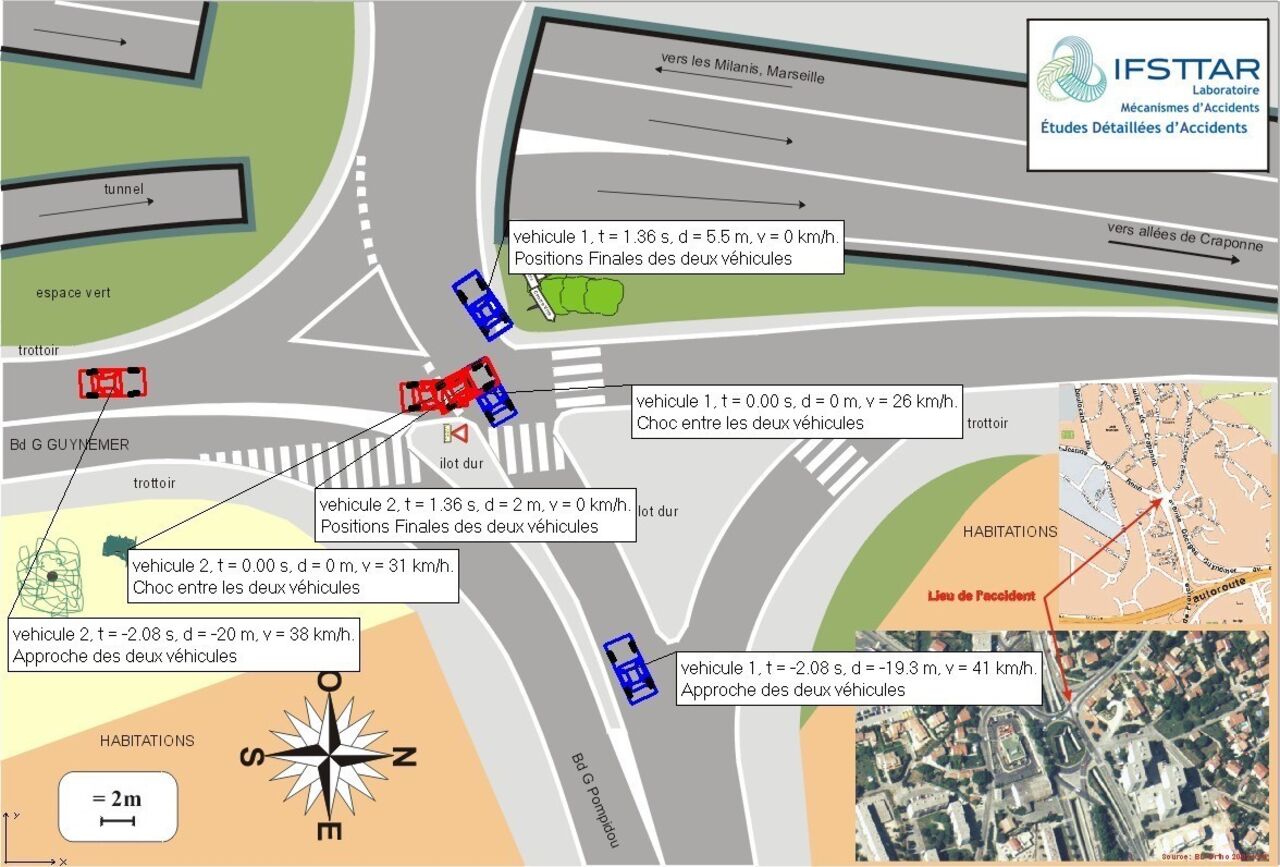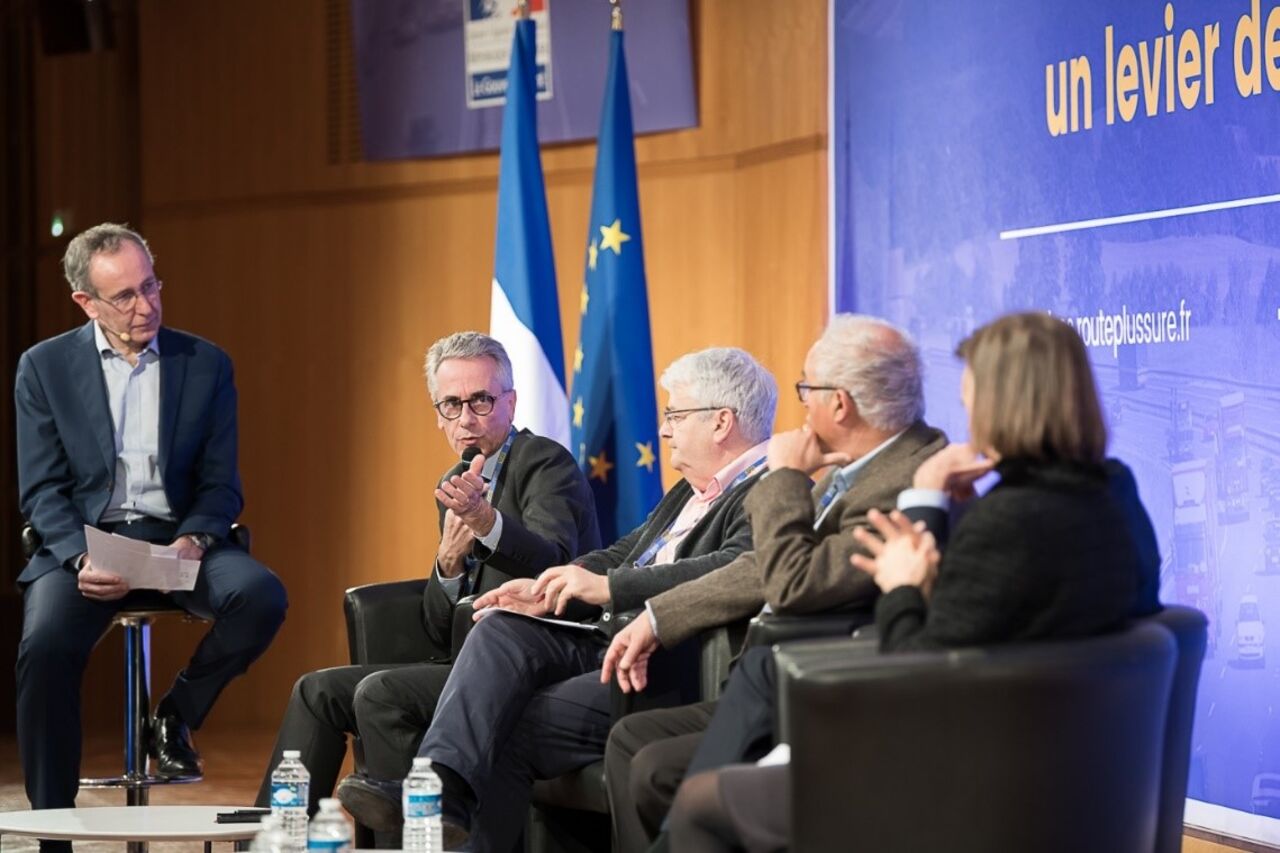On 11 October 2016, in the presence of the Ministers of the Interior and Labour, twenty-one business leaders announced seven firm commitments to ensure the safety of their employees' work-related journeys. They decided to organise meetings to allow signatory companies to share resources and work together on effective communication measures to combat work-related road risk. At the end of 2018, nearly 1000 business leaders had signed up to these commitments. The fifth meeting of the club of employers committed to road safety was held on 7 October 2018 at the National School of Administration (Ecole Nationale d’Administration - ENA).
The morning session was intended to discuss the results and the measures implemented by five invited companies in order to fuel a collective discussion that would identify new courses of action. The morning's proceedings began with a brief presentation on the adoption of prudent behaviour by a researcher from IFSTTAR. This helped to clarify the contributions from three branches of psychology (cognitive, developmental and social) to identifying levers for action for companies (awareness of the stages involved in behaviour change and the need to modify action accordingly). The SNCF Group's Deputy Director of Occupational Health and Safety, the Occupational Safety Manager of IBM France, the Corporate Risk Prevention Manager of AXA Prévention and Covéa's Occupational Health and Safety Manager then presented their respective assessments and action plans. Networking between the stakeholders will provide an opportunity to continue the dialogue.
On December 17, 2018, the second national symposium on road safety at work was held on the topic of "leveraging performance", during which companies came to share their experience. It should be noted that road traffic accidents account for more than half of all fatal work-related accidents. Every year, nearly 500 people die in this way, either on their way to or from work or while performing their duties and ten times more will suffer very serious after-effects. Nearly 6 million working days are also lost as a result.
The purpose of this day-long event was to gather ideas and arguments that will help to convince companies of the merits of the initiative. Several round tables were held on employee training, alcohol- and telephone-related risks while driving, corporate mobility plans and technological innovations.
Road safety and firms
A review has also been carried out to support public decision-making by providing new insights into the socio-economic valuation of personal injuries and the effects of active mobility on the health of road users.
In 2018, 3,259 people were still killed in road traffic accidents in France. In order to reduce this number, new policy levers must be found. The French government is supporting companies in their efforts to reduce occupational road risk and prevent accidents, and IFSTTAR has lent its support to the Road Safety Commission (DSR) to ensure that knowledge spreads to firms that manage a large fleet of vehicles. The company must thus develop action plans that take account of road safety on home-work journeys as well as on journeys made as part of the its staff's duties. As part of an expert assessment conducted for Butagaz, the influence of human factors on accident occurrence was examined. At the fifth meeting of the club of employers committed to road safety, the focus was on the factors that enable users to adopt safety-conscious behaviour. Finally, during a symposium entitled "Road safety at work: a lever for performance", various thematic sessions and a round table enabled the participating companies to provide feedback, identify good practices and the future actions to be implemented.
Vasem: Estimating the cost of road traffic accidents
Road traffic accidents in France are a major problem for the community and result in more than 3,000 deaths and nearly 300,000 injuries every year. With a view to assessing the cost of road traffic accidents, the Road Safety Commission (DSR) provided IFSTTAR with financial support to launch a project known as the Socio-economic Valuation of Road Morbidity (VASEM). This project began in 2017 and is continuing as part of a doctoral thesis.
The cost of road traffic accidents can be broken down into five main components: human costs, medical costs, production losses, material damage and administrative costs. The first findings focused on human and medical costs. They were obtained in part by using the Rhône Registry and the PMSI MCO database (Programme for the Development of Medical Information Systems Medicine, Surgery and Obstetrics). The human cost was estimated at €89,000 for the hospitalised casualties with minor injuries and €182,000 for casualties with severe injuries. The average short-stay hospitalisation costs for patients with minor and serious injuries were estimated at €2,242 and €10,338 respectively for 2013.
In the future, the project will seek to determine a method for estimating the costs of the other three components. The ultimate objective is to estimate the socio-economic consequences of accidents for society as accurately as possible and to provide public decision-making support when prioritizing road safety measures.
Butagaz safety day
The Detailed Accident Studies (EDA) conducted by IFSTTAR’s Laboratory of Accident Mechanism Analysis (LMA) allow us to discuss the role of the human factor in the causation of road traffic accidents. These studies, which are carried out in Salon-de-Provence, are a fundamental component of accident research. The "real-time" involvement at the accident site of a team consisting of a psychologist and a technician allows a significant amount of data to be collected on the three components of the user-vehicle-infrastructure traffic system. This approach permits an in-depth analysis of the causes and mechanisms of accidents. Butagaz approached us because they wished to benefit from this expertise in the field of accident studies. Our involvement took place as part of the "Butagaz safety days" event. After presenting some general knowledge about driving and human functioning, we proposed an analysis of a number of Detailed Accident Studies. We showed the audience that the very design of the traffic system means humans have to move in a complex, variable, evolving and uncertain environment. It is their ability to act by correcting their mistakes that allows humans to drive. Human error is not a primary cause of accidents but the consequence of malfunctions that occur at an earlier stage. A film of our presentation is available on the Butagaz intranet site. It serves as an awareness-raising tool for the company.




